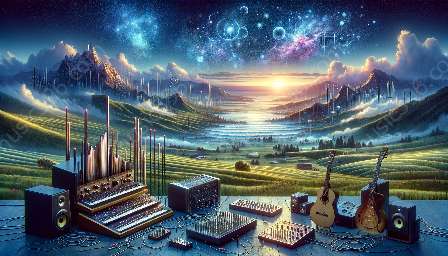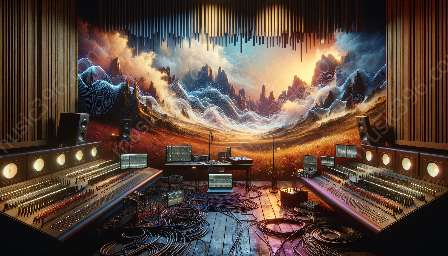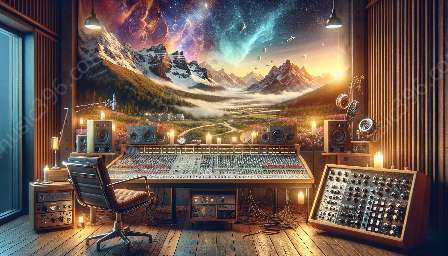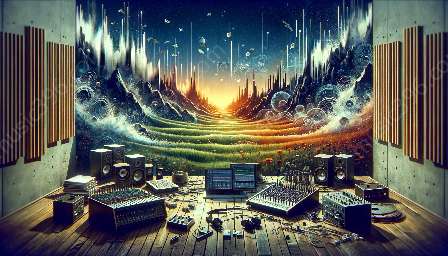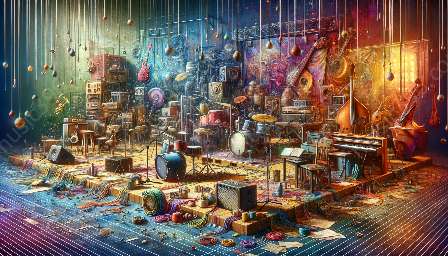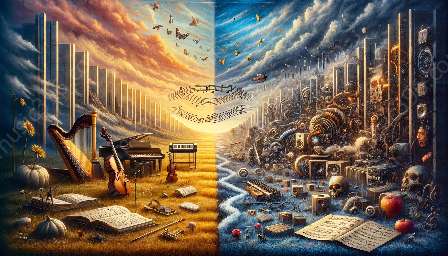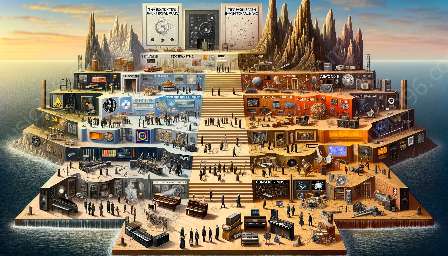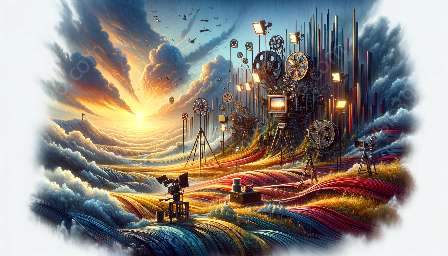Experimental music often pushes the boundaries of conventional artistic expression, and as such, its creators often seek to foster an environment of collaboration and innovation. The use of open-source and Creative Commons licenses in this genre has played a significant role in shaping the landscape of intellectual property rights in experimental and industrial music.
Open-source licenses, such as the GNU General Public License (GPL) and Creative Commons licenses, allow artists to share their work with others under specific terms and conditions. These licenses have become vital tools for experimental musicians as they navigate the complexities of intellectual property and rights within the context of their unique creative process.
The Significance of Open-Source and Creative Commons Licenses
Open-source and Creative Commons licenses both offer a framework for creators to grant specific permissions for the use and distribution of their work. In the experimental music scene, this has proven to be a powerful mechanism for fostering collaboration, expanding audiences, and promoting a spirit of openness and creativity.
Open-Source Licenses
Open-source licenses are an essential component of the experimental music landscape. By using open-source licenses, artists can give others the right to use, modify, and distribute their works, often leading to the creation of derivative works and new soundscapes.
One of the most prominent open-source licenses, the GPL, ensures that any derivative works based on the original must also be licensed under the GPL. This requirement fosters a culture of reciprocity and sharing within the community.
Creative Commons Licenses
Creative Commons licenses also offer a range of permissions that creators can use to dictate how their works can be shared and used. These licenses provide a spectrum of permissions, from allowing unrestricted use and sharing to more restrictive terms, such as non-commercial or no-derivatives clauses.
In experimental music, Creative Commons licenses have been instrumental in enabling artists to share their work with a global audience while still maintaining control over how their creations are utilized and attributed. This flexibility aligns well with the ethos of the genre, where collaboration and innovation are highly valued.
Intellectual Property and Rights in Experimental Music
When it comes to intellectual property and rights in experimental music, the landscape can be complex and ever-evolving. Open-source and Creative Commons licenses offer a means to navigate this terrain, providing artists with the ability to protect their creations while also allowing for collaboration and exploration.
Protecting Artistic Integrity
One of the primary challenges for experimental musicians is maintaining the integrity of their work while sharing it with others. Open-source and Creative Commons licenses address this challenge by giving artists the means to specify how their work can be used, ensuring that their artistic intent is respected even as their creations are shared and built upon.
Community Collaboration
Experimental music thrives on collaboration and community. Open-source and Creative Commons licenses facilitate this spirit of collaboration by allowing artists to establish clear guidelines for how others can engage with and build on their work. This fosters a symbiotic relationship within the community, where creative exploration and experimentation are encouraged.
Experimental and Industrial Music
Experimental and industrial music genres stand at the forefront of innovation and boundary-pushing creativity. As such, the use of open-source and Creative Commons licenses has been especially impactful in these genres, enabling a new level of freedom and creativity in music production and distribution.
Exploring New Soundscapes
The open sharing and collaboration enabled by open-source and Creative Commons licenses have led to the creation of new and unique soundscapes within the experimental and industrial music scenes. Artists are able to draw inspiration from and build upon each other's work, leading to the emergence of innovative and groundbreaking musical experiences.
Embracing Innovation
Open-source and Creative Commons licenses reflect the spirit of innovation that defines experimental and industrial music. By allowing for the free exchange of ideas and fostering a culture of experimentation, these licenses have empowered artists to push the boundaries of traditional music production and distribution.
Conclusion
Open-source and Creative Commons licenses have become integral components of the modern experimental and industrial music landscape. These licenses offer a framework for artistic collaboration, innovation, and exploration within a community that values creativity, openness, and the continual reimagining of what music can be.




